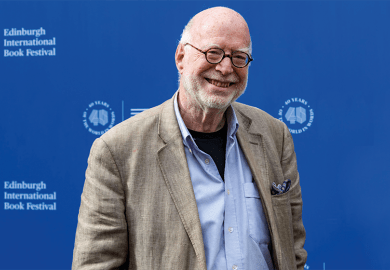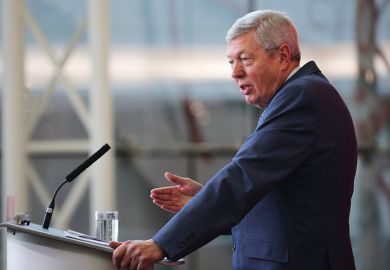Author: Tom Jones
Edition: First
Publisher: Edinburgh University Press
Pages: 240
Price: £18.99
ISBN: 9780748656165
Is there a new way in which we might think about poetic language? Tom Jones’ bracing, difficult and at times brilliant new study argues the case. Drawing on his extensive reading in poetic theory, post- structuralism, Marxism and the English poetic tradition, Jones argues for what many will see as a post-Heideggerian theory of poetic language as engaged with the stuff of the world, its reality and possibilities, and claims that the best poetry is intensely aware of its relationship to the language it uses. This is not, as Jones makes clear, to say that poetry is simply about language, a position he regards as a mistake that elides a complicated and delicate series of relationships.
The book consists of an introduction followed by 12 readings of different poems and poets. Each concentrates on a particular aspect of the poem/writer and in most cases applies this focus to two different poets to provide a sense of perspective. Walter Raleigh is analysed in terms of his use of figurative language, often assumed to be the basic condition of poetry, a concept later used to explore a work by Tom Raworth; William Cowper is considered in terms of what he selects in his writing, which is then applied to Denise Riley; William Wordsworth is described in terms of his use of measure, the language of men that connects readers and defines his poetry, which is also used as a means of exploring Robert Creeley’s poetry. The chapter on W.S. Graham and deviance is especially impressive, showing how Graham uses the very ordinariness of his language to develop what is possible in poetry, a point easily overlooked or garbled.
This is an original and fiercely intelligent book. It is not for the faint-hearted. I admire its confrontational nature and the wealth of insights it produces, although sometimes I worry that the theory has driven the practice. For example, I wonder whether Thomas Campion (1567- 1620), a hired hand at court, is not self-consciously employing the cries of street vendors to highlight his own precarious position rather than distancing himself from the marketplace, as Jones argues. I was especially pleased to read a book that did not trot out the familiar arguments about poetry and its register, diction and understanding of decorum. But I do worry that Poetic Language might not catch on as a textbook because it concentrates so much on Anglo-American poetry after Modernism, carries on some arguments rather too far and takes no prisoners; and because the poems are not all printed in the book. These are, however, small prices to pay for such a stimulating challenge.
Who is it for?
Advanced undergraduates specialising in poetry.
Presentation:
Nicely produced and generally good to use.
Would you recommend it?
Yes, if readers are prepared to work hard.
Register to continue
Why register?
- Registration is free and only takes a moment
- Once registered, you can read 3 articles a month
- Sign up for our newsletter
Subscribe
Or subscribe for unlimited access to:
- Unlimited access to news, views, insights & reviews
- Digital editions
- Digital access to THE’s university and college rankings analysis
Already registered or a current subscriber? Login



